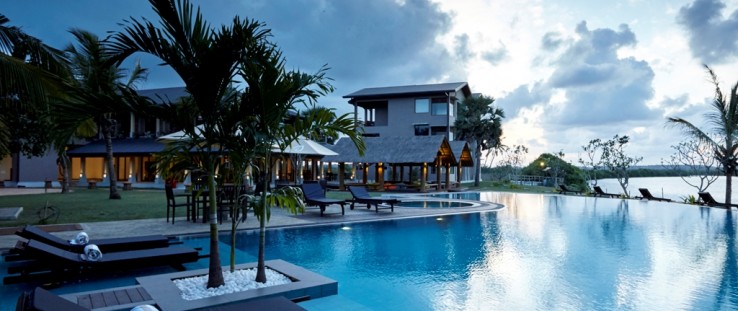 Amaranthe Bay hotel
Amaranthe Bay
Amaranthe Bay hotel
Amaranthe Bay
 Amaranthe Bay hotel
Amaranthe Bay
Amaranthe Bay hotel
Amaranthe Bay
Speeches Shim
In 2009, 20 years after fleeing the conflict between Sri Lanka and the separatist Tamil Tigers, 59-year-old Subramaniam Yogadas and his family returned to his coastal village in the Eastern district of Trincomalee. They had been refugees in India and the end of the conflict allowed them to rejoin their few surviving relatives.
Amaranthé Bay, a small luxury hotel poised between a lagoon and the sea, offered a bright new beginning for him and his family of six, which includes a disabled child. Yogadas was the hotel’s first employee. Amaranthé Bay’s goal was to develop the property to offer employment and training opportunities to the conflict-affected and impoverished local community. For the majority of the hotel’s 70 staff, including war widows who resettled after the conflict, Amaranthé Bay offered a second chance to live.
It is one of about 50 small and medium enterprises (SMEs) supported by USAID Sri Lanka’s Biz+ program. Started in 2011, Biz+ targets SMEs seeking to double or triple their businesses, and then provides assistance to help them succeed. Amaranthé Bay owners maximized the technical support provided by Biz+ and invested over six times as much of their own capital ($3.3 million) in the project, which included building the hotel. It now provides 138 jobs.
Yogadas explains: “Prior to this, the salary I earned was meagre and so I had to borrow to make ends meet. I am new to the hospitality trade and I have to learn a lot of new things. But it has been a positive change. Now I am very optimistic about my future.”
On this tiny island emerging from 26 years of conflict, SMEs are recognized as the backbone of the economy. They account for 80 to 90 percent of the total number of enterprises, contribute 30 percent of GDP and 20 percent of exports, and employ 35 percent of the total workforce. However, SMEs face significant challenges in accessing finance, working capital and skilled employees.
USAID developed the Biz+ program to strengthen the government’s ongoing efforts to improve the business climate by providing financial, technical and managerial assistance to new and existing SMEs, particularly in the conflict-affected Northern and Eastern districts and other economically lagging border regions. These partnerships include the hospitality, food, leather products, apparel and dairy processing industries.
So far, the program has created more than 10,000 employment opportunities, leveraged over $14 million private sector funds, benefited 8,090 households and increased incomes of residents by more than $8 million.
“The Biz+ program is remarkable because it is made up of determined women and men who not only want to succeed but are also committed to seeing their communities improve,” said Andrew Sisson, USAID’s mission director in Sri Lanka. “That is why a hallmark of Biz+ businesses is their focus on how they can employ, train and partner with their community so that they benefit as a whole. This is how Biz+ is helping to provide war widows, the disabled, survivors of gender-based violence and other vulnerable populations with hope for a brighter tomorrow.”
More Than a Job
Tharsiny Raththinasingham, 25, lost a limb during the conflict, becoming one of too many vulnerable women—widows, disabled women, single mothers and those abandoned or separated from their husbands—who were devastated by the conflict. But Raththinasingham found hope at the Sivanarul Vocational and Training Center in Killinochchi. It was established in 2012 as a socioeconomic enterprise that produces and markets local flour and spices as a way to provide jobs, new skills and steady incomes to women affected by the conflict.
Sivanarul turned to Biz+ for help to maximize its workforce, and improve production and business management. The organization matched Biz+’s investment grant to build a workers’ hostel and a storage facility. The hostel provides housing for 48 employees, particularly disabled workers, addressing transportation challenges and providing an opportunity for female workers to work a second shift.
“The profit of the business belongs to the women who work diligently in the center. With a new hostel, new equipment and transportation, the center helps us to overcome challenges and be successful businesswomen,” said Raththinasingham.
She is now economically independent and has gained confidence to socialize with others. “She is now enjoying life without worrying about the leg she lost,” says Tharsiny’s mother, Vasantha. “She is happy to work and earn for her family and for herself. As a mother, that is all I prayed for, and I am very proud of it.”
Changing an Industry
In the Jaffna peninsula, which was an epicenter of the conflict, building an ice factory has created economic opportunities all along the seafood value chain.
“Due to the lack of ice, we experienced a 10 to 20 percent loss of our catch during transport,” explained Mariahonesteen Nirojan, a Jaffna fish seller. “If we could earn 400 rupees ($3) per kilo on a good day, we would only earn half as the catch was spoiled or was not sufficiently cooled.”
Thinuravukkasu Senthan had a lifelong dream of starting an ice factory in his hometown of Jaffna but finding a viable business model was impossible. “I was struck by how little entrepreneurship there was in the region as a result of the conflict,” he recalled.
After the conflict ended, Senthan submitted an application to Biz+ to build Jeyantha Industrial Park, a 20-ton-per-day ice factory that is transforming the Northern fishing industry.
Before the ice factory, middlemen traders provided fishermen with ice and controlled the prices of what had been caught. Now any fisherman can purchase ice from Jeyantha, negotiate prices with buyers, and transport fish to markets as far as the South. The availability of ice allows fishermen to work longer without having to return to shore.
According to a small-scale fisherman, Shanthan*, “previously, we would only go out to sea at about 4 a.m. and return by 6 a.m. so that we could get the fish to the market before it was spoiled. Now, we fish all night.”
He says he is now earning over $100 a day.
Migrating out of Jaffna has traditionally been the dream of most locals in the region, but the presence of the ice factory has actually lured some people back home. Jesu*, a medium-scale fish trader who worked as a chef in Norway, returned to Jaffna to restart his family’s fish trade business because it was actually more lucrative.
Access to ice has been transformative in reducing loss, he says. “Without ice, the difference between morning and afternoon fish sales is about 50 percent. At least 60 percent of our catch would remain, to be sold at the lower price in the afternoon.”
New business has also emerged in the form of ice merchants like Anandarasa*, who purchases 20 to 30 blocks of ice from Jeyantha daily, and delivers it to about 40 microbusinesses located too far away to pick up the ice themselves.
Jeyantha has 23 staffers, mostly previously unemployed youth, who now earn a salary equivalent to $152-$167 a month, plus bonuses. Now that his business is solid and steady, Senthan plans to expand into related areas such as fish trading and processing. “Our profit is large enough now that banks trust us and are willing to loan to us,” he explained.
Senthan is extraordinarily proud to be a pioneer in rebuilding Jaffna. “At the ice factory, people do not get a handout, but a salary. We do not want charity anymore. USAID’s grant and guidance helped us to survive and continue to grow. This is a starting point.”
*Full names not available.
Land O’Lakes contributed to this article.


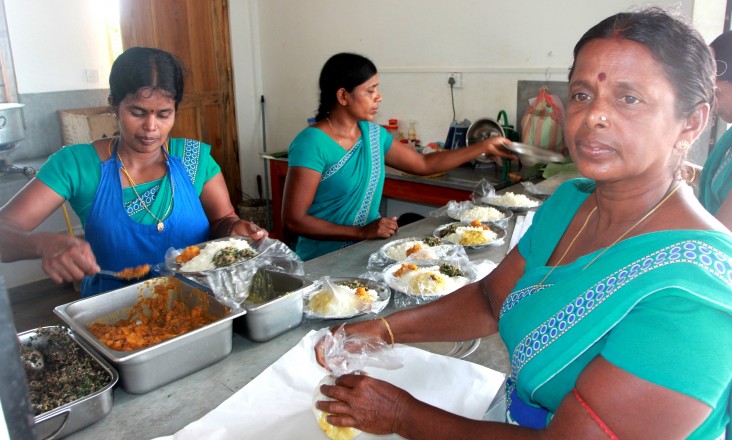
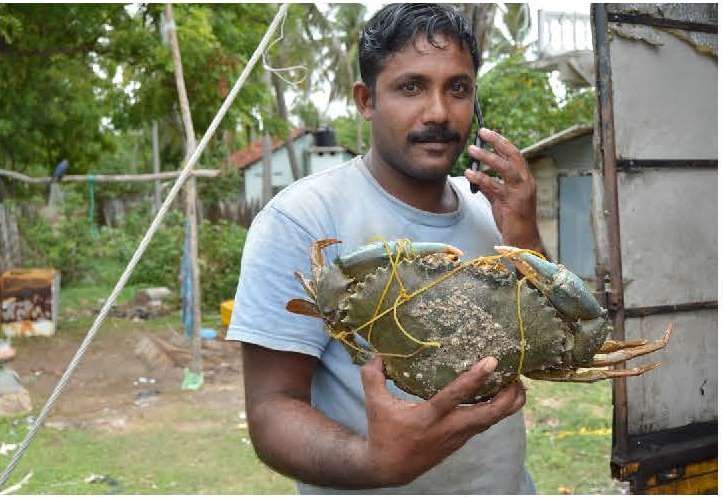
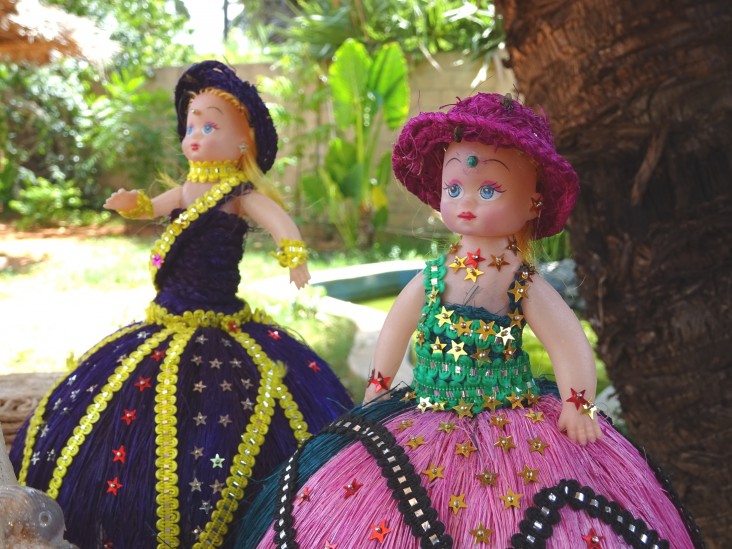
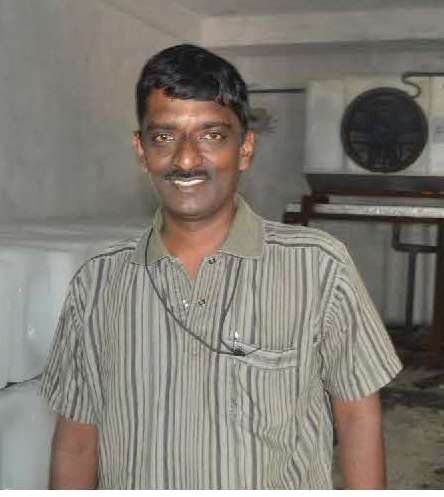
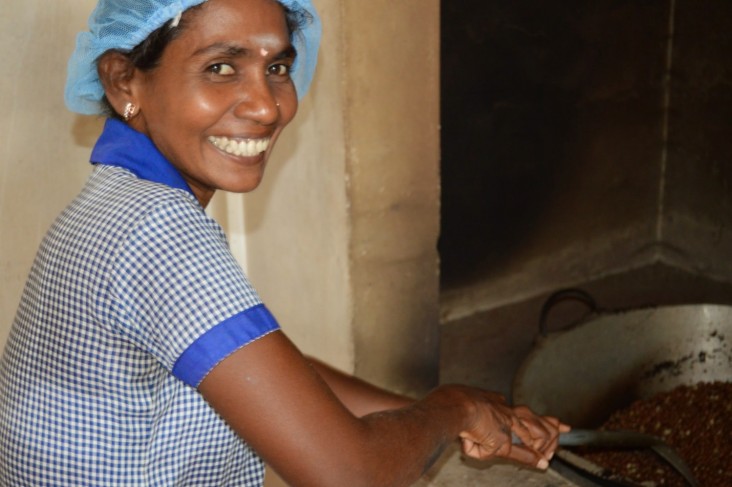
Comment
Make a general inquiry or suggest an improvement.